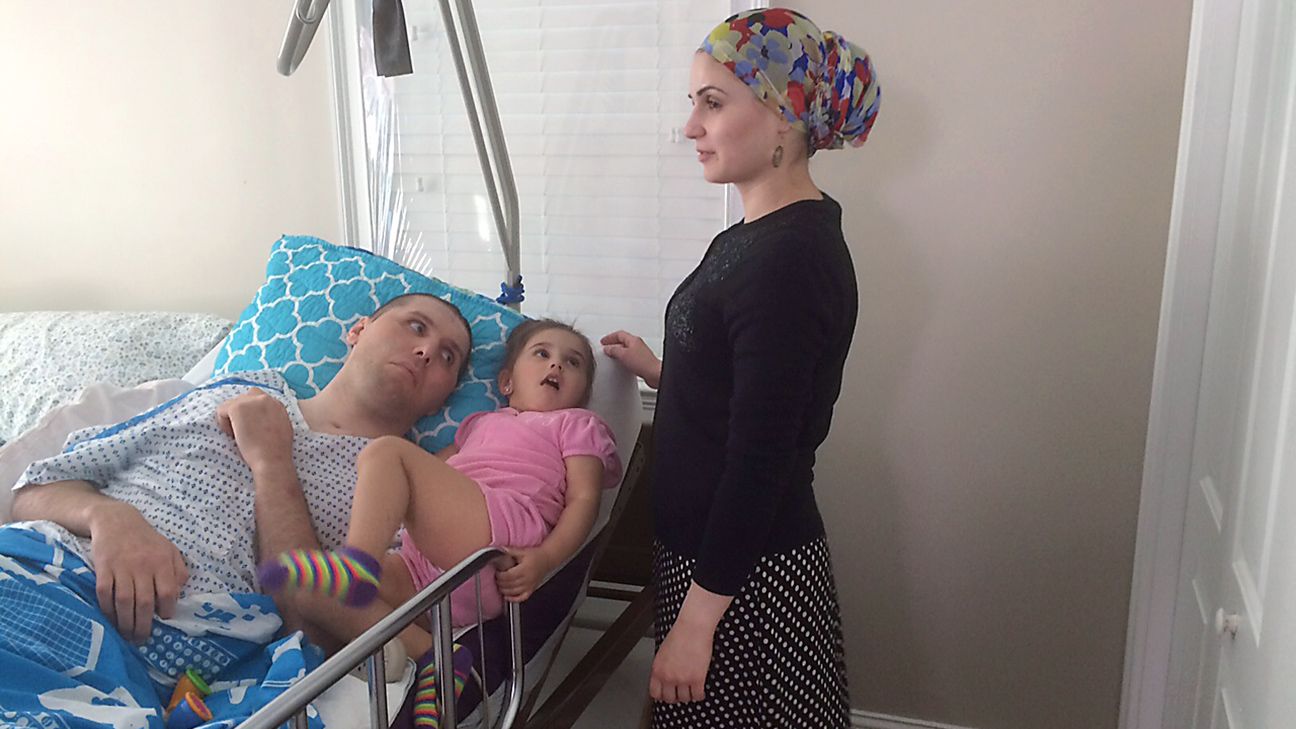On the day jury selection was scheduled to begin, the family of disabled boxer Magomed Abdusalamov settled a multimillion-dollar medical malpractice lawsuit against three doctors who worked the 2013 bout that left him with permanent brain damage.
Terms of the settlement reached late Tuesday with ring doctors Anthony Curreri, Osric King and Gerard Varlotta in New York State Supreme Court are confidential.
Attorneys representing the doctors were not immediately available for comment.
A month ago, the Abdusalamovs’ lawyer, Paul Edelstein, told ESPN’s Outside the Lines the doctors had not made an offer to resolve the suit. He told OTL on Wednesday that, after a day of motions and negotiations before Judge Marsha Steinhardt, the defendants decided to “provide the Abdusalamov family with the financial security they need.”
“This should’ve happened a long time ago,” added Edelstein, who said he believes the settlement resulted from the doctors realizing “we were ready for trial and they would have had to take the witness stand and answer questions under cross-examination about their actions that night [of the fight].”
The Abdusalamovs also settled a suit in 2017 and received a record-setting $22 million from the state of New York. Curreri, King and Varlotta had been retained by the New York State Athletic Commission for the Abdusalamov-Mike Perez fight six years ago but were not covered by the state’s settlement over that bout.
Abdusalamov and Perez were undefeated at the start of their Nov. 2, 2013, fight on HBO in the Theater at Madison Square Garden. Perez was a unanimous winner of a 10-round decision, after landing 312 punches to Abdusalamov’s 248 and leaving the native of the Russian Republic of Dagestan with a bloodied and swollen face.
Varlotta and Curreri examined Abdusalamov postfight in the dressing room, stitched a deep cut above his left eye, cleared him to leave and suggested that he see a doctor within a week of returning to his Florida home, to have the stitches removed and receive X-rays of a suspected facial fracture. In a series of interviews with OTL, Abdusalamov’s handlers said they heard him say during the exam that his head hurt.
The doctors had an ambulance at their disposal but elected against recommending that Abdusalamov go to a hospital that night.
With the doctors having left the dressing room, a fight inspector saw blood in Abdusalamov’s urine sample and advised the boxer’s team to take him to a hospital by taxi.
Surveillance video showed an increasingly unsteady Abdusalamov outside the arena, vomiting on the curb, while his interpreter attempted to hail a cab. Once at a hospital’s emergency room, Abdusalamov lost consciousness. A CT scan revealed a brain bleed; he underwent emergency surgery, suffered multiple strokes and was in a coma for weeks.
A married father of three girls, Abdusalamov, 38, remains paralyzed on his right side and has severely limited ability to communicate.
A report three years ago by the New York State inspector general took the athletic commission to task for having had inadequate emergency plans and for failing to properly communicate with Abdusalamov and his team, who were not told an ambulance was available. The state’s investigation, lasting 32 months, found systemic problems with the commission and a need for numerous reforms.
Attention to ring safety and care for boxers has heightened this summer with the deaths of two boxers, Maxim Dadashev and Hugo Santillan, from brain injuries suffered in the ring. Edelstein said Tuesday’s settlement is “a clear indication that more needs to be done to protect these athletes who put themselves in danger for the entertainment and profit of others.”
